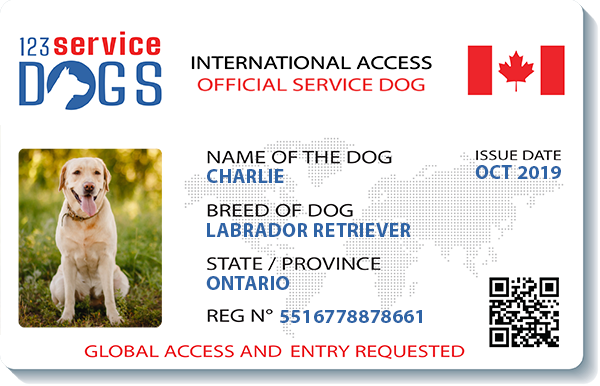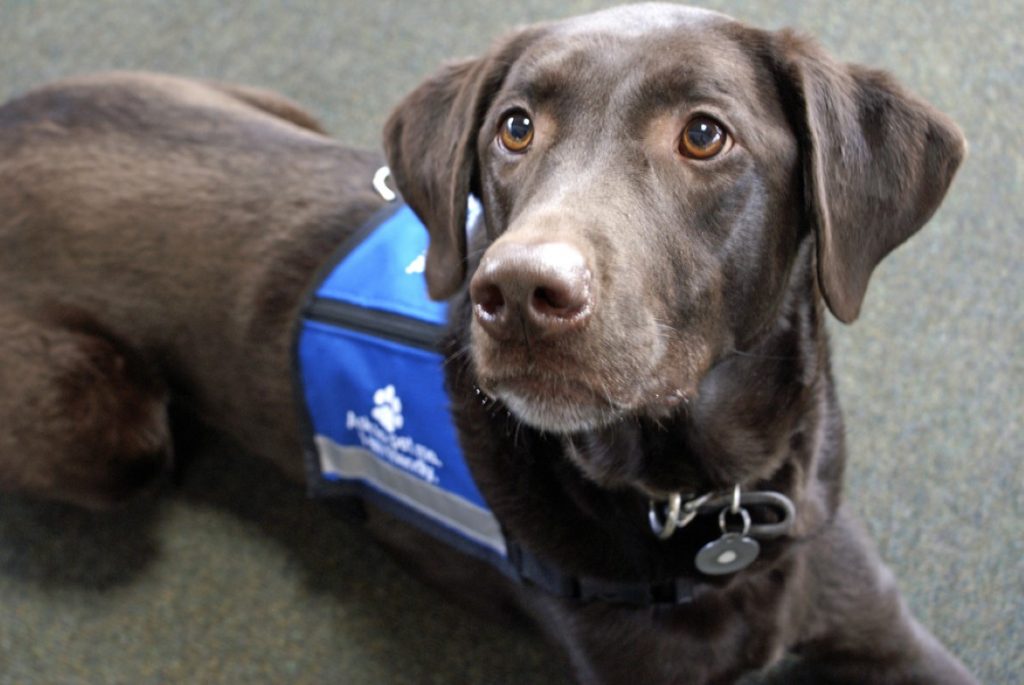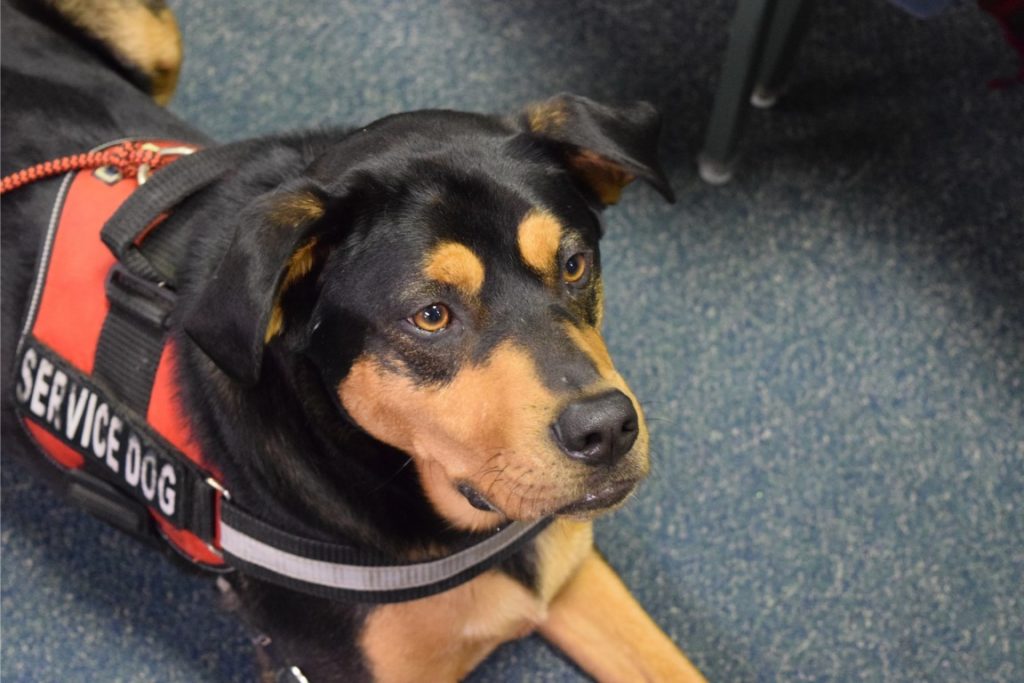
Register your service dog in minutes
Service dogs significantly improve the quality of life for people with physical and mental disabilities (including people who suffer from mental disorders, visual and hearing impairments, PTSD, immobility, diabetes and seizures). Since service dogs are trained to serve as an aide to their owners, they are considered to be assistants to the disabled person, rather than pets.



If you are limited in your ability to perform any major daily tasks such as hearing, seeing, standing, walking, sleeping, speaking, thinking and so on, then you have have a disability for which you can use the assistance of a service dog.
Service dogs are used for navigation for people with visual and hearing impairments; they are trained to assist a person having a seizure, or help relieve a Post Traumatic Stress Disorder attack.
According to Accessibility laws in Canada and the USA, service dog owners have the right to access any and all public places with their service animal, and no business can deny access to a service dog owner or the animal. If that happens, the case can be brought to court and the business could face a significant monetary penalty.
With proper certification, you can avoid disputes and clearly show that your dog is a service dog and not a pet, and no one is allowed to deny you access to the premises with the animal. No one is allowed to ask you what kind of disability you suffer from, but you can be asked about the nature of tasks that the dog performs. In this case, you can explain what type of tasks the dog is trained to perform (like tugging on your shirt when it’s time for medication), but you’re not obligated to disclose any details of your disability.
Many people depend on service dogs to help them live more comfortably with their disability. However, many disabilities are not visible, and the tasks that service dogs perform will differ greatly based on individual conditions. Any dog can be a service dog, and there are no particular laws regarding their training. However, in order to ensure access to public places and make others aware that your dog is a service dog and not a pet, it is desirable to have proper certification for the animal (a certificate, registry evidence, and a vest or collar that indicates the dog is a service dog).


The USA and Canada have laws that protect service animals and their owners. These laws vary from state to state and from province to province, but in one way or another, they forbid any form of discrimination against people with disabilities, which includes accessibility to most public places. Patrons can confirm whether an accompanying animal is a service animal in two ways:
– If it’s visibly apparent that the customer requires the assistance of the service animal due to their disability.
– If the customer provides an identification card that shows they require the animal.
Please note that some disabilities may not qualify in certain jurisdictions.
Allergies
Breathing Difficulties
Balance Issues
Cardio Vascular problems
Deafness (partial or complete)
Diabetes
Epilepsy
Mobility Issues
Paralysis
Physical Weakness
Partial or complete blindness
Seizures
Seizures (General Medical Alert
Anxiety
Adjustment Disorders
Bipolar Disorder
Depression
Dissociative Disorders
Eating Disorders
Factitious Disorders
Fears and Phobias
Impulse-Control Disorders
Mood Disorders
Mental Disorders Due to a General Medical Condition
Neurodevelopmental Disorders
Panic Disorder
Post-Traumatic Stress Disorder
Personality Disorders
Psychotic Disorders
Suicidal Thoughts/Tendencies
Social Anxiety Disorder
Stress
Sexual and Gender Identity Disorders
Sleep Disorders
Somatoform Disorders
Substance Related Disorders
Separation Anxiety
Neurocognitive Disorders